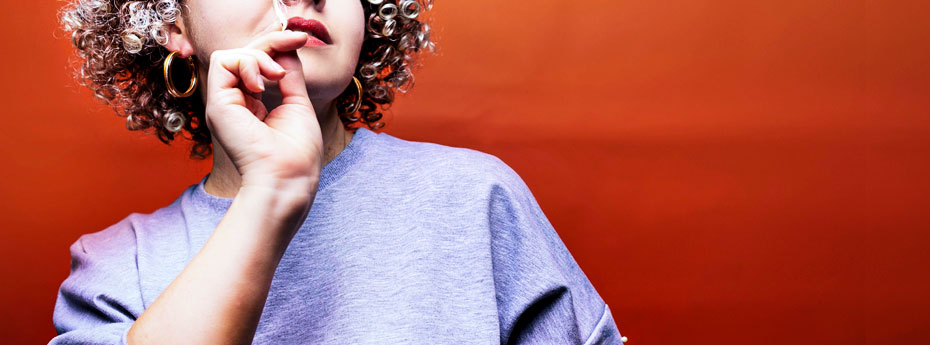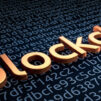
What skills need to be mastered for a brilliant stand-up comedy act? How do comedians build their performances, find inspiration, and come up with really funny jokes? The answers to these and other questions can be found in my book selection dedicated to the comedy genre.
Judy Carter “The Comedy Bible”
One of the best-known books about the art of joke-making and one of the bestselling books for aspiring stand-up comedians. The author Judy Carter takes jokes apart into their component elements and shows how to build these elements to make a joke work, using clear examples. Her method is a set of daily exercises that will teach you how to get your jokes right, whether you’re performing on stage, writing a sitcom script, or wittily signing a postcard.

John Vorhaus “The Comic Toolbox”
This book is primarily intended for screenwriters and sketch writers. John Vorhaus offers readers his methods of creating jokes and describes several practical tools to help develop a sense of humor and overcome creative fears. Individual chapters of the book deal with specific topics: how to create a comic premise, how to come up with a character, what types of comic stories exist, and so on.
Greg Dean “Step-By-Step to Stand-Up Comedy”
Another well-known and popular guide to the “production” of jokes and sketches, primarily for stand-up comedians. The author Greg Dean has been teaching the basics of stand-up comedy since 1982. He provides his joke structure model in his textbook and explains through examples why some jokes work and others don’t.
Mike Sacks “Poking a Dead Frog: Conversations with Today’s Top Comedy Writers”
Unlike other books, this one is not a practical guide to creating jokes – it contains workshops, conversations, and interviews with leading stand-up comedians. Among them are Mel Brooks, Amy Poehler, Adam McKay, Patton Oswalt, Bill Hader, and other world-renowned comedians who share their secrets and professional advice on becoming a high-paying professional, how to do what you love, and where to find inspiration.

Franklyn Ajaye “Comic Insights: The Art of Stand-Up Comedy”
Another collection of interviews with famous stand-up comedians and other television presenters like George Carlin, Ellen DeGeneres, Louie Anderson, Richard Belzer, Elaine Busler, Richard Janney, and others. The first part of the book contains useful tips to help you understand the basics of stand-up, find your style, and create your first material. The second and largest part is interviews with stars of the genre. The third part contains conversations with experts involved in finding and promoting comedians.
Steve Kaplan “The Hidden Tools of Comedy: The Serious Business of Being Funny”
A well-known book that is intended for anyone interested in or working in the comedy genre. Essentially, this is an expanded version of the course that author Steve Kaplan teaches to American college students. The manual does not contain advice on how to come up with jokes – the main emphasis is on parsing scenes from famous comedy movies and TV series. With their help, the author explains the cases when the “engine” of a joke works, when it doesn’t, and why.

Jay Sankey “Zen and the Art of Stand-Up Comedy”
The author of this practical manual not only teaches readers the basics of stand-up but also outlines how to improve their workflow. He reflects on the nature of the profession and the specifics of the comedy genre. Much attention is paid to how to “make friends” with your character and find your own style, how to build your performances better, and properly interact with the audience.
Scott Sedita “The Eight Characters of Comedy: A Guide to Sitcom Acting and Writing”
Written by an experienced screenwriter, casting director, and acting coach, this book is useful for comedians and screenwriters first. Scott Sedita describes eight types of comedy characters accompanied by a detailed psychological portrait of each. In addition to character descriptions, he shares the secrets of acting and gives a brief excursion into the history of comedy series. In an appendix, he teaches actors how to behave when casting. The knowledge gained from reading this book will help screenwriters in coming up with multi-layered and funny characters and actors in realizing these characters truthfully during the filming stage.

Mel Helitzer & Mark Shatz “Comedy Writing Secrets: The Best-Selling Book on How to Think Funny, Write Funny, Act Funny, And Get Paid For It”
Another practical guide to creating jokes, written in the spirit of The Comedy Bible. It covers the key things every comedian and stand-up comedian should know: the basic principles of joke writing, all sorts of techniques and tools, mechanisms for testing jokes, and more. Separate chapters in the book are devoted to sitcoms and other comedy subgenres.
Gene Perret & Linda Perret “Comedy Writing Self-Taught Workbook: More than 100 Practical Writing Exercises to Develop Your Comedy Writing Skills”
This manual contains more than a hundred drills and exercises to “pump up” your comedy writing skills. It’s a “workbook” published to work in conjunction with the book “Comedy Writing Self-Taught: The Professional Skill-Building Course in Writing Stand-Up, Sketch, and Situation Comedy.” However, the collection of exercises can be used without reference to the main book. All the exercises are divided into five parts: the first helps you develop a sense of humor, the second improves your stand-up skills, the third is for working with a mentor, and the fourth and fifth are designed for those who write sketches and sitcoms.





